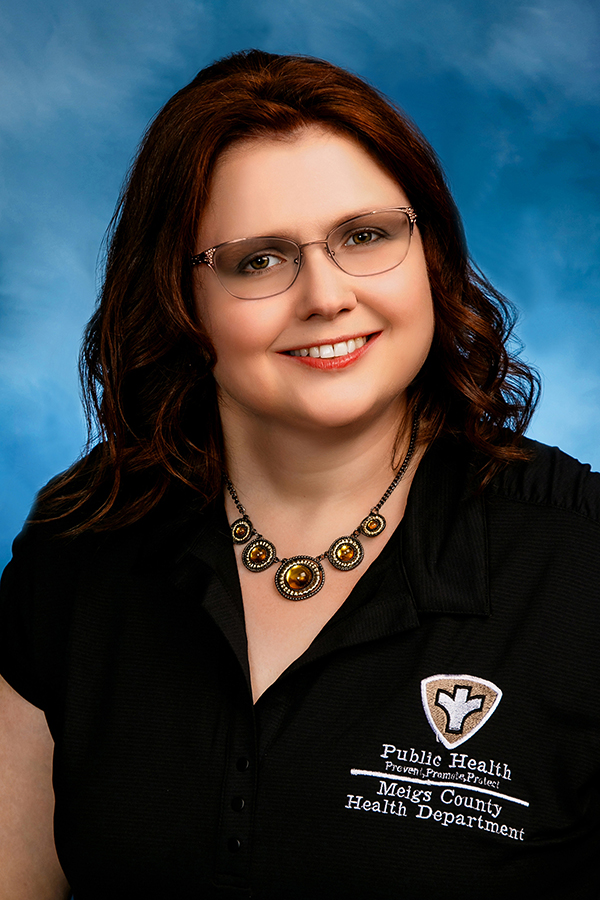Meigs Health Today: Keeping Up Mental Health


Meigs Health Today: Keeping Up Mental Health
By Courtney C. Midkiff, BSC, MCHD Administrator
It is safe to say that everyone will remember 2020 as a year of unprecedented challenges overshadowed by a declared global, national, state and local pandemic As an Administrator at a local public health department, I can certainly attest that COVID 19 has taken its toll not only on the staff of the Meigs County Health Dept. (MCHD), but all those associated with the public health system throughout the USA, Ohio and Meigs Countysuch as university or academic institutions; public health laboratories; healthcare systems; hospitals; managed care organizations; local chapters of national health-related groups; state health departments; community-based organizations; epidemiologists; environmental health data experts; emergency preparedness teams; the general public; community health planners.

Life events did not cease because of the Pandemic. We extend sincerest sympathy to those who lost loved ones to the virus and appreciation to those who have courageously battled it. Like many of you, MCHD employees also have experienced turmoil in 2020 because of the death of loved ones, health issues and burnout, which is a state of emotional, mental, and often physical exhaustion brought on by prolonged or repeated stress.Burnout is not simply a result of working long hours or juggling too many tasks even though those both play a role. The cynicism, depression, and lethargy that are characteristic of burnout most often occur when a person is not in control of how a job is carried out, at work or at home, or is asked to complete tasks that conflict with their sense of self. Many of your MCHD staffers have experienced burnout at some time during the past 10 months. Administrating changing Federal and State orders and guidance and implementing safety precautions have causedfrustration and confusion and required new policies and procedures that often necessitate constant revision. Equally pressing is working toward a goal that doesn’t resonate(including but not limited to containing community spread of the COVID 19 virus or conducting successful contact tracing) and when we lack public support.
Meanwhile, your MCHD staff recognizes it has much for which to be grateful. During this sacred time of year, we as a society celebrate Christmas. Kindness and goodwill to all mankind are encouraged, but shouldn’t we show love for ourselves and our fellow man more than a month or two per year? It certainly is important to pay attention to how your family members, friends and neighbors are feeling and acting, but it is equally important to take care of your own physical and emotional health. Care of your own health will help you think clearly and react to urgent needs to protect yourself and your loved ones.
Please monitor yourself for these common signs of distress and seek help from your healthcare provider, if these stress reactions interfere with your daily activities for several days in a row.
- Feelings of shock, numbness, or disbelief
- Change in energy or activity levels
- Difficulty concentrating
- Changes in appetite
- Sleeping problems or nightmares
- Feeling anxious, fearful, or angry
- Headaches, body pain, or skin rashes
- Chronic health problems get worse
- Increased use of alcohol, tobacco, or other drugs
The following are some suggested ways to cope with strong feelings associated with COVID-19, burnout or other tragic circumstances:
- Take Care of Your Body – Try to eat healthy, exercise regularly, get plenty of sleep and avoid alcohol and other drugs.Incorporate stretching or meditation into your routine. Take deep breaths when feeling overwhelmed.
- Connect – Share your feelings with a friend or family member. Maintain relationships and rely on your support system. Keep participating in hobbies/activities that do not expose you to close contact with others in confined spaces.
- Take Breaks – Make time to unwind. Try to return to activities that you enjoy.
- Stay Informed – Watch for news updates from reliable officials.
- Avoid -Avoid excessive exposure to media coverage of the event.
- Ask for Help – Talk to a clergy member, counselor, or doctor or text the keyword “4hope” to 741 741 to speak with a mental health professional. Locally, Hopewell Health Centers Behavioral Health Wellness Clinic is offering free walk-in services for the public on Dec. 21 and 30th. For more information, call 740992-2192.
If you have a mental health condition, continue with your treatment plan and monitor for any new symptoms. Call your healthcare provider with any concerns.
Finally, remember that distress, anxiety, fear and strong emotions are normal in times of distress or crisis. Remind yourself and others that these feelings will fade. Try to remain hopeful. Whether 2020 brought you success, fulfillment and joy or you faced grief, setbacks and struggle, you can look ahead to 2021 with hope.






